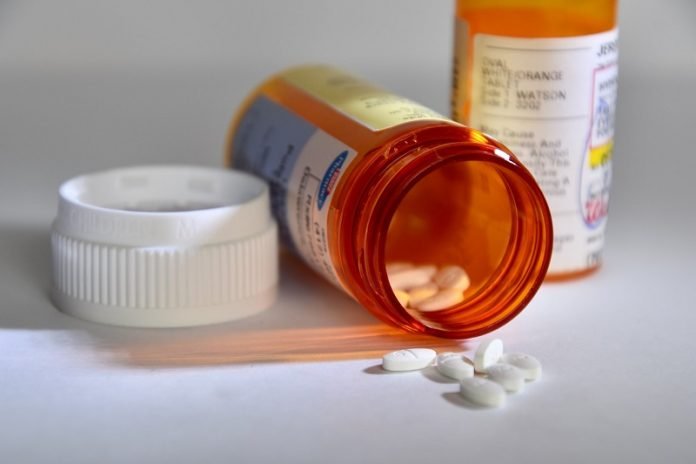
In a new study, researchers found that a common type of blood pressure medication might be associated with an increased risk of suicide.
They found people taking angiotensin receptor blockers (ARBs) appear to be more likely to die by suicide, compared to those who take another type of blood pressure drug called ACE inhibitors.
The research was conducted by a team at St. Michael’s Hospital and published in JAMA Network Open.
ARBs and ACE inhibitors both work by interfering with the action of angiotensin II, a hormone in the body that causes blood vessels to constrict.
ARBs work by blocking the ability of angiotensin II to bind with receptors and command blood vessels to narrow, while ACE inhibitors actually lower the amount of the hormone produced within the body.
Both drugs are commonly used to treat high blood pressure, chronic kidney disease, heart failure, and diabetes.
In the study, the team used Canadian health databases to identify 964 people who died by suicide within 100 days of being prescribed either an ARB or an ACE inhibitor.
They then compared those people to a control group of just over 3,000 people also taking either type of blood pressure medication.
The results showed that people taking ARBs had a much higher risk of suicide than those on an ACE inhibitor.
Patients using ARBs had a 63% increased risk of death by suicide over people on ACE inhibitors.
The team explains that ARBs might cause levels of angiotensin II to increase in the brain. That could be related to mood disorders, and that could trigger suicidal-type behavior.
Other factors that could influence suicide risk might have come into play with these patients. For example, some were taking antidepressants or benzodiazepines.
The team says there is a reason for some concern but they need to have more work to test the finding.
They suggest patients may want to choose the ACE inhibitor over the ARB.
The lead author of the study is Muhammad Mamdani, director of the Applied Health Research Center.
The study was published in JAMA Network Open.
If you care about blood pressure, please read studies that black licorice could cause dangerously high blood pressure, and this common plant nutrient could help reduce high blood pressure.
For more information about blood pressure, please see recent studies about how tea and coffee influence your risk of high blood pressure, and results showing this olive oil could reduce blood pressure in healthy people.



